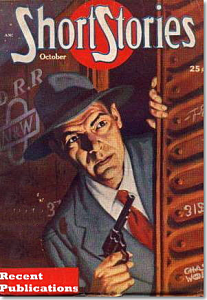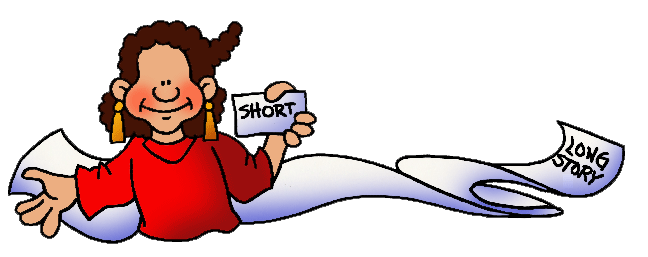 Some colleagues and I were recently discussing the relative value of short fiction (short stories, novelettes, and novellas) vs full-length novels. Much to my surprise, there were those who seemed to feel that short stories were of no particular value – one went so far as to suggest that the “lowly short story” was essentially a waste of a writer’s time, for a variety of reasons.
Some colleagues and I were recently discussing the relative value of short fiction (short stories, novelettes, and novellas) vs full-length novels. Much to my surprise, there were those who seemed to feel that short stories were of no particular value – one went so far as to suggest that the “lowly short story” was essentially a waste of a writer’s time, for a variety of reasons.
Yeah… you know me. I couldn’t leave that one alone, and because I feel so strongly that short stories are extremely valuable – both to readers and writers – I had to address the issues point-by-point.
Lowly Argument #1: Short stories are lowly in the author-recognition factor.
I have often read a short story, enjoyed it, and looked for more work by that author. As a reader, a short story is a great way to test the waters and see if I like a new-to-me writer’s work without the commitment of a full novel. As a writer, short stories are one of the best forms of author-advertising there is, for lots of reasons (see argument #4).
Lowly Argument #2: Short stories are lowly in the paid department, because the author gets no advance.
Sure, there are a lot of unpaid markets out there for short fiction, and most of the professional-paying short fiction markets will pay in the neighborhood of $.05-$.10 cents a word for a story between 3000-10000 words long (talking in averages here). So it doesn’t add up to a ton-o-bucks up front. But short fiction markets also only hold onto the rights for a very limited time (see argument #3 on contracts), and then the author can (and I have) sell reprint rights, put the short story up as an ebook at low or no-cost, offer it as an audiobook, etc., and continue earning from it.
As an example, “With Friends Like These” is a 10,000-word story I didn’t sell to a print market, but published directly as an ebook in 2010, and it’s been a consistent earner for me for nearly four years. Even at ebook royalty rates, it’s been a decent workhorse, in both the royalty dept. as well as in leading people to the companion novel, Conflict of Interest. I’ll be putting up another short in that same series this summer, in anticipation of the next book release in the fall. (see the previous topic: short stories as author-advertising)
And in the ROI department, it takes me so much less time to write a short story than a novel (orders of magnitude less!) that what I earn from a short story over its life is actually quite competitive with the earnings from a novel, in a strict, “dollars per hour” sense.
Lowly Argument #3: How about contracts?
What about the contracts? Short fiction markets in the US (whether print or online):
- typically ask for first world English rights for a limited period
- automatically revert the rights back to you after 6 mos – 2 yrs (depending on the publication)
- don’t ask for foreign and audio rights
- don’t ask for rights they’re not immediately using (i.e., a magazine doesn’t ask for anthology rights, etc.)
- don’t include non-compete clauses
- don’t require an agent/IP attorney to negotiate
- don’t include royalties, so no “reserve against returns” held back from your payment
- etc.
Personally, short fiction contracts are so straightforward and uncomplicated as to be a breath of fresh air.
Lowly Argument #4: You enjoy writing Short Stories, fine, but you should be using your time writing the book and promoting YOUR NAME.
Again (and in summary), short stories are a good way to:
- build name-recognition among readers
- keep your name visible between novels
- explore a story idea which may/may not turn into your next novel
- get to know a secondary character in greater depth
- give your new readers an introduction to your work
- give your current readers “cookies” to keep them excited about your work while waiting for the next novel
- build a collection you can eventually sell/self-publish to accompany your full-length novels
Lowly Argument #5: It all depends on what you want out of your writing.
And now we finally come to an argument I cannot refute!
If you enjoy reading/writing short stories, the more the merrier. There’s a wealth of material out there for you to enjoy. If you don’t enjoy reading/writing short stories, you’re under no obligation to either read or write them.
Of all the benefits of short stories, I think my favorite is the opportunity they give me to explore the side-streets of a larger work. I can get to know secondary characters or figure out more about a world I’m either developing or have already created.
It’s just my opinion here, on this blog, but I have to say it: short stories are FAR from lowly! And I fully intend to continue writing them.
– Lauryn

